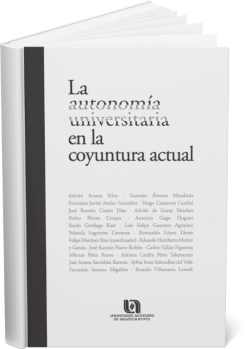THE UNIVERSITY AUTONOMY IN THE CURRENT CONJUNCTURE
Synopsis
In the political and academic spheres, the concept of autonomy has been historically cloaked in an aura of probity. This symbolic veneer is not gratuitous, at least not in a context like ours. A deep dive into the rise and consolidation of Autonomous Constitutional Bodies (ACBs) in recent decades would reveal how much we owe them in terms of the real exercise of democracy, access to information, economic competition, and national development, free from the harmful practices of monolithic and authoritarian power, exercised from the presidency that we suffered for several terms. The case of university autonomy runs parallel to that of the ACBs, although with ontological, historical, legal, and practical particularities that distinguish it from the autonomy exercised by the latter.
Chapters
-
Preface
-
University Autonomy: Background, Challenges, and Prospects
-
Academic Autonomy
-
University Autonomy and Students
-
The University Autonomy Regime and the National Legal Order
-
University Autonomy and Asset Management
-
Autonomy and institutional government
-
Autonomy: from whom, for whom, scope, conditions
-
Recapitulation and some lines for further dialogue
-
University autonomy under siege: from state neo-interventionism to republican austerity
-
University autonomy in Supreme Court decisions
-
In defense of autonomy
-
Comments and proposals
-
Shifting boundaries on the autonomy and freedom of teaching and research
-
University autonomy, evolution and strengthening
-
Forty years of the constitutional reform on university autonomy.Labor implications
-
Autonomy and the defense of the public university
-
A new perspective on university autonomy
-
The university autonomy in the current conjuncture
-
The current challenges of university autonomy
-
Reflections on universities and autonomy
-
Autonomy and educational policy: Two discourses
-
University autonomy and knowledge management

Published
Series
Categories
License

This work is licensed under a Creative Commons Attribution-ShareAlike 4.0 International License.













